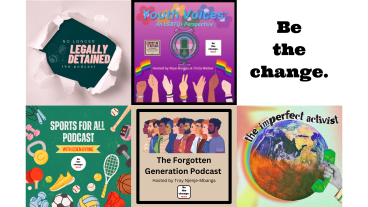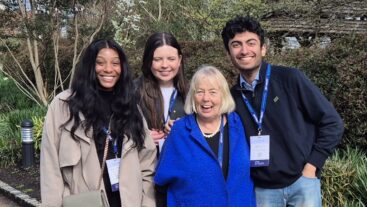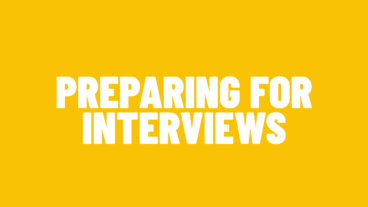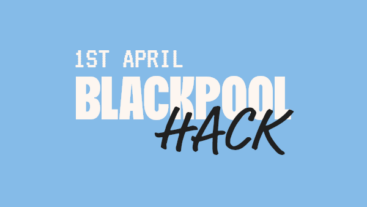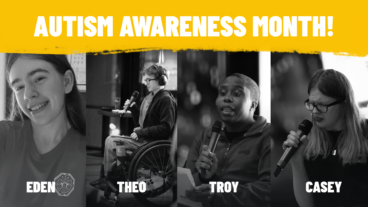2 November 2020
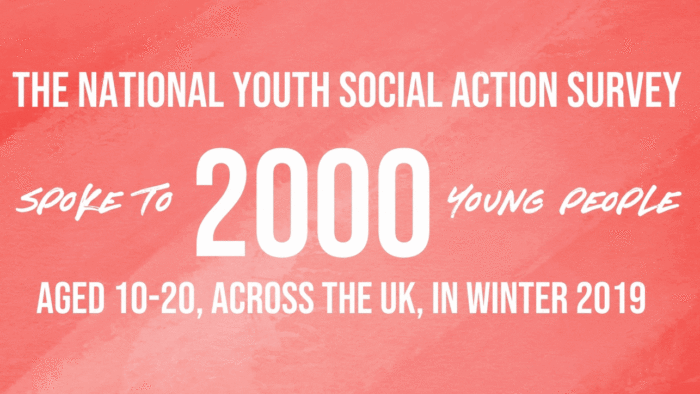
New findings from The National Youth Social Action Survey 2019 deepen our understanding of the national picture since 2014.
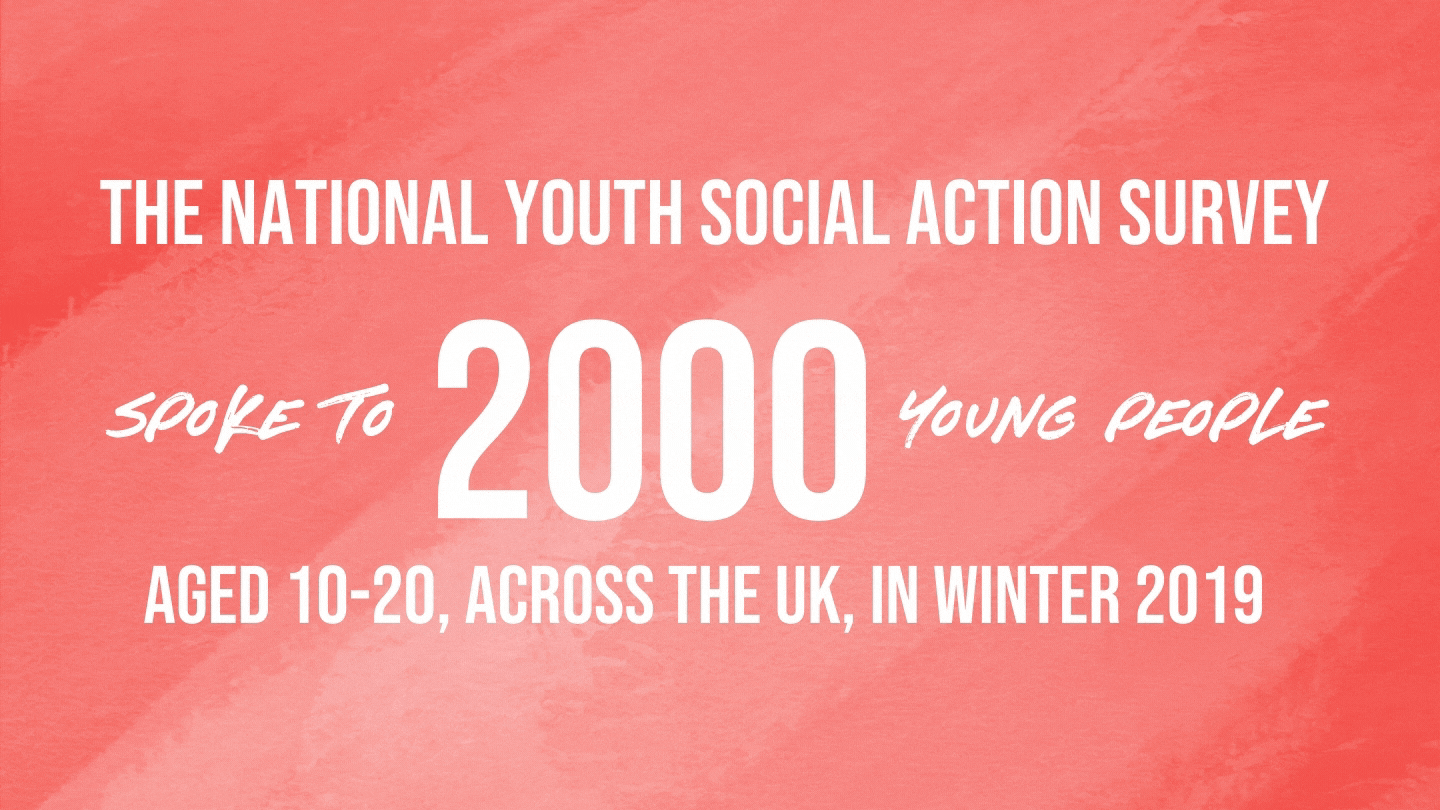
2019 Survey
The National Youth Social Action Survey 2019 was conducted in the winter of 2019, before the COVID-19 Pandemic. During face-to-face interviews with researchers from Ipsos MORI, children and young people are asked to reflect on their participation in social action over the last 12 months, as well as how they view themselves in relation to their community and society.
There are also new and interesting findings which present both opportunities and challenges for the #iwill movement as it transitions into its next phase. These include:
Opportunities
- Children and young people who had taken part in meaningful social action were more likely to feel a stronger sense of belonging in their communities and take a more active role in their community than those who didn’t engage in meaningful social action.
- Children and young people’s sense of agency in relation to their community and wider society is high. The vast majority cared about making the world a better place (88%); and believed they could make a difference (74%)
- Year-on-year the activity children and young people had most frequently participated in is ‘fundraising or a sponsored event’ (43% of young people in 2015-2018, 39% in 2019). The 2019 survey findings suggested an increase in campaigning/raising awareness activities: 12% of 10 to 20 year olds in 2019, compared with 8% in 2018 and 2017.
- As highlighted in the survey in previous years, children and young people are most likely to get involved in youth social action if they do so through their school or college.
Challenges
- The 2019 shows a slow downward trend in participation in youth social action as defined in the survey from 59% in 2015 to 53% in 2019.This is mirrored in the participation in ‘meaningful’ social action, which has decreased by 6% over the last four years, from 42% in 2015.
- There continues to be a significant participation gap between children and young people from low-income backgrounds (29% C2DE) and their more affluent peers (41% ABC1).
- The most common reasons given by young people as to why they had not participated in social action were ‘it never occurred to me to take part’ (32%) and ‘my friends aren’t doing this kind of thing’ (28%) which is consistent with previous years’ surveys.
- This year’s findings however, also indicated an increase in the proportion of young people who stated there were ‘few/no opportunities in my area’ (19% in 2019, compared with 12% in 2018 and 4% in 2017).
What is the survey?
The National Youth Social Action Survey was established in 2014 to build an understanding of the trends and drivers of participation in youth social action amongst 10 to 20 year olds in the UK.
It exists to help those working to provide social action opportunities to better understand how and why children and young people get involved in social action if they do, or reasons for not taking part if they don’t.
The survey is commissioned by DCMS and conducted by Ipsos Mori on behalf of the #iwill campaign. It was specifically developed for 10-20 year olds to understand the range of ways they are engaging in social action. Interviews are conducted with over 2,000 10-20 year olds across the whole of the UK each year.
Every year the survey questionnaire and analysis is shaped by a collective of organisations and young people supporting the aims of the #iwill campaign – a movement aiming to support and empower all children and young people to make a positive difference on the issues that affect their lives, their communities, and broader society.
For the purposes of the survey, young people have taken part in ‘meaningful social action’ if they have:
- Been involved in social action in the past 12 months.
- Participated in social action at least every few months or taken part in a one-off activity lasting more than a day in the last 12 months.
- Recognised a benefit to themselves and others and/or the environment because of their social action.
Headline Findings Since 2014
Since 2014 when the survey began there have been several consistent findings which are helping to shape the way youth social action opportunities are delivered. Some of these include:
- The vast majority of children and young people care about making the world a better place and believe they can make a difference.
- Roughly 5 out of 10 children and young people are taking part in social action. However, only 4 out of 10 children and young people have taken part in ‘meaningful’ social action.
- There is a significant and persistent gap in participation between children and young people from low-income backgrounds and their wealthier peers which needs to be addressed.
- Children and young people would be more likely to take part if they had more encouragement and could take part with their friends.
- Children and young people are most likely to say they got involved in social action through school and college.
- The participation gap between different income backgrounds closes significantly if children and young people take part in social action through school or college.
